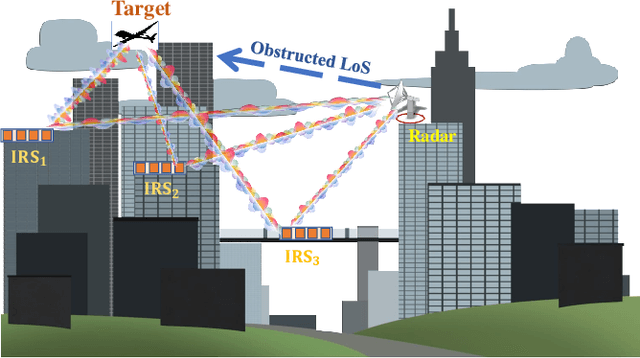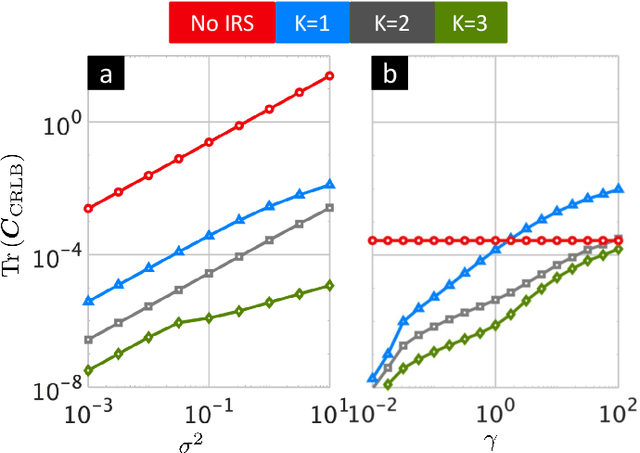Cramer-Rao Lower Bound Optimization for Hidden Moving Target Sensing via Multi-IRS-Aided Radar
Paper and Code
Oct 11, 2022

Intelligent reflecting surface (IRS) is a rapidly emerging paradigm to enable non-line-of-sight (NLoS) wireless transmission. In this paper, we focus on IRS-aided radar estimation performance of a moving hidden or NLoS target. Unlike prior works that employ a single IRS, we investigate this problem using multiple IRS platforms and assess the estimation performance by deriving the associated Cramer-Rao lower bound (CRLB). We then design Doppler-aware IRS phase-shifts by minimizing the scalar A-optimality measure of the joint parameter CRLB matrix. The resulting optimization problem is non-convex, and is thus tackled via an alternating optimization framework. Numerical results demonstrate that the deployment of multiple IRS platforms with our proposed optimized phase-shifts leads to a higher estimation accuracy compared to non-IRS and single-IRS alternatives.
 Add to Chrome
Add to Chrome Add to Firefox
Add to Firefox Add to Edge
Add to Edge